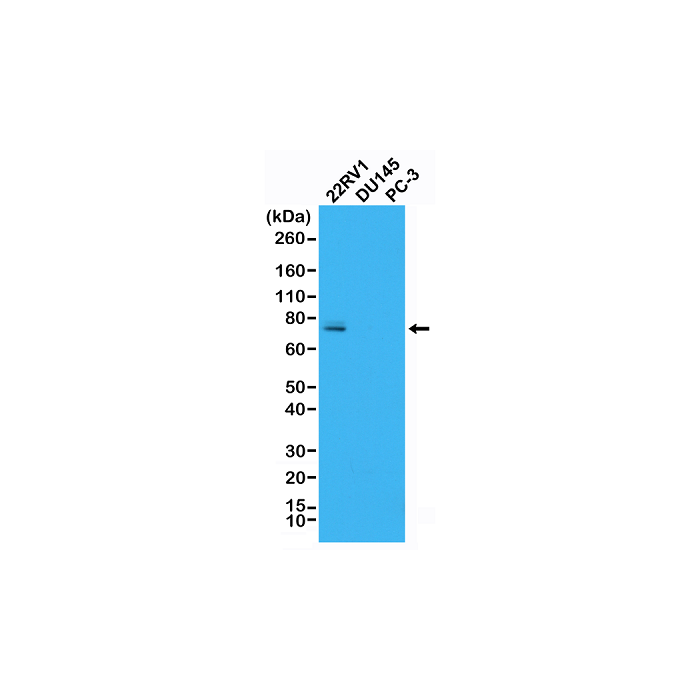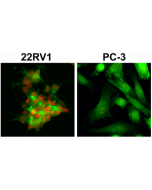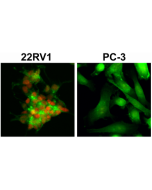Cookie Policy: This site uses cookies to improve your experience. You can find out more about our use of cookies in our Privacy Policy. By continuing to browse this site you agree to our use of cookies.
RevMab
22RV1 Whole Cell Lysate (human)

| Product Details | |
|---|---|
| Product Type | Protein |
| Properties | |
| Source/Host | Human |
| Crossreactivity | Human |
| Application |
Western Blot (10-20 µL/lane) |
| Specificity |
Human Prostate Carcinoma Epithelial Cells |
| Formulation | Liquid, contains lithium dodecyl sulfate (LDS) at pH 8.4. |
| Other Product Data |
Click here for Original Manufacturer Product Datasheet |
| Declaration | Manufactured by RevMab Biosciences. |
| Shipping and Handling | |
| Shipping | BLUE ICE |
| Short Term Storage | -20°C |
| Long Term Storage | -80°C |
| Handling Advice | Avoid freeze/thaw cycles. |
| Use/Stability | Stable for at least 1 year after receipt when stored at -20°C. |
| Documents | |
| Product Specification Sheet | |
| Datasheet |
 Download PDF Download PDF |
The 22Rv1 cell line is a human prostate carcinoma cell line that was established from a xenograft initiated by the inoculation of a hormone-refractory prostate cancer cell line, CWR22, into athymic nude mice. The CWR22 xenograft was derived from a primary prostate carcinoma. Upon regression after castration and subsequent relapse, the 22Rv1 cell line was established from the relapsed tumor, which exhibited androgen-independent growth.
22Rv1 cells express the androgen receptor (AR) and prostate-specific antigen (PSA), essential markers in prostate cancer research and therapeutic targeting. Notably, this cell line contains a variant form of the AR known as AR-V7. This splice variant lacks the ligand-binding domain, enabling it to remain constitutively active and contribute to the androgen-independent proliferation of 22Rv1 cells, a critical aspect of castration-resistant prostate cancer (CRPC).
The 22Rv1 cell line is extensively used to investigate the mechanisms underlying the transition from androgen-dependent to androgen-independent prostate cancer growth, a key challenge in the treatment of advanced prostate cancer. 22Rv1 cells have facilitated significant advancements in understanding the molecular biology of CRPC, including the role of AR variants in resistance to androgen deprivation therapy (ADT) and the development of novel therapeutic strategies aimed at overcoming this resistance.
In summary, the 22Rv1 cell line, serves as a critical model for studying CRPC. Exhibiting androgen-independent growth, these cells express key prostate cancer markers such as AR and PSA, and notably contain the AR-V7 variant, which is constitutively active due to the absence of the ligand-binding domain. The 22Rv1 cell line's unique properties make it invaluable for exploring the transition from androgen-dependent to independent growth in prostate cancer, and thereby aid in the development of new therapeutic approaches to tackle advanced stages of the disease.







